How to Build an Actual Play Podcast, Part 1
Pre-Production or: Everything to Know Before You Press Record
This is the first part of my series on How to Make an Actual Play Podcast and I want to start it off with a caveat:
Take everything I say with a grain of salt.
This entire series is based on my own experience and won’t be universal, but I hope everyone will be able to find a nugget or two to help them get started with confidence. Find what works for you and disregard anything that you think is bad advice (including anything and everything you are about to read).
Cherry pick the best bits from anyone who inspires you and ignore the rest. That’s what I do.
-Brian
Casting
Let’s start with the fun part: putting together a cast.
First off, unless you have a big budget and plan to pay people really good rates right out of the gate, I wouldn’t look anywhere beyond your immediate friend circle. It’s important to look for people who are excited about what you’re trying to make and want to do the work to help make it good.
Notice that I didn’t say “find your most crazy-talented friends.” Talent is excellent, but I would rather have a collaborator that is hardworking and invested in what we are doing every day of the week (and twice on Sunday).
And I will say this many more times before this series is done: Producing a podcast of any kind is hard work. If you want it to last, you need to find collaborators who are excited to be involved and who are willing help shoulder that burden.
Setting Expectations
Once you’ve found your cast, the most important thing you need to do is clearly outline your expectations and the commitment for the project.
A mismatch of expectations is the easiest way to invite friction into a project.
Have a frank conversation at the outset and discuss:
Pay (Who gets paid and how much?)
Ownership (Who owns the show and how much do they each own?)
Timeline (When are we doing this? Is this on-going?)
Promotional Obligations (Who is promoting the show and how?)
Expected Time Commitment (How much time should I schedule each week for this?)
For shows that are just starting out, being very clear about these things will solve most of the early problems that will arise. It might be a slightly awkward conversation, but it is one of the most effective ways to prevent friction down the line. And just like RPG safety tools, this is a continuous and evolving conversation. Start the dialogue strong and maintain open communication.
Equipment
When you’re starting out, you will think about equipment more than you should.
When it comes to audio, the most important thing to remember is to fix as many problems as possible at the source.
If you have a bad signal when you record, no amount of post-production will make it sound good. But good sound doesn’t have to break the bank.
Let me start by breaking down my exact setup and the price associated with getting something to sound like My First Dungeon.
Rodecaster Pro ($499) (bundle w/ mics, cables, headphones, stands)
4x Podmics ($100 each)
2x Cloudlifters ($249 each)
Adobe Audition ($54/month, full creative cloud)
Various Plugins (will cover more in Part 3: Post-Production)
Cabling (~$75)
Zoom Subscription ($149/year)
3x LaCie Rugged 2TB External Hard Drive ($119 each)
All in all, my at-home, four-person setup is somewhere around $3,000.
HOWEVER! You can accomplish something very similar for a MUCH lower price point.
Samson Q2U USB/XLR Microphone (~$50)
Plugs directly into your computer via USB (also has optional XLR output if you ever upgrade)
FREE
NADDPOD (one of the biggest D&D actual play podcasts) was edited on Garageband for most of its first season. It will absolutely do the job
Zoom Subscription ($149/year)
LaCie Rugged 2TB External Hard Drive ($119)
Though you should always have a backup (more on backups in Part Two)
This setup (which has been used by some players on My First Dungeon) will cost you $50 per player, $12.50 a month for a zoom subscription, and $120 for a hard drive to store all your audio. All you need to do is keep your recording space as quiet as possible and take your time with editing and you will have audio quality that–quite frankly–will be better than a majority of the podcasts that people put out.
I often see filmmakers and artists deflect the question of “What gear do you use?” by saying, “Equipment doesn’t matter.” It was always an annoying answer to me, but ultimately they’re right.
Better equipment makes things easier, but it’s more important to just grab some mics, learn about them, and just start.
You will learn more from recording and editing a single episode than you will over-researching equipment. It’s the answer no one wants to hear, but it’s the truth.
Who Should I Pay First: The Players or The Editor?
This is a common question online and one that I believe is fundamentally misguided.
There is no story without players, but there is no show without an editor/producer.
There is a very good chance that you won’t start your burgeoning AP with much cash to burn, but when you are able to start paying people: Pay everyone.
Performance and improvisation are skills. It takes practice and dedication to craft in order to hone them and improve. An actual play performer may look similar to someone playing in a home game, but good AP performers are focused on the audience and their fellow collaborators and are under the most pressure to tell a satisfying story. The players are the public face of the show and will be most immediately associated with its successes and its failures.
Editing, even at its most basic level, is a tedious, time-consuming craft. Each AP episode of My First Dungeon takes between 25 and 40 hours of editing and sound design–though you certainly don’t need to dive that deep to get a great sounding podcast. Editors and producers are often the unsung heroes of great shows, but when they do their jobs right, they will make your players shine.
I’ve said it before and I’ll say it again: Producing a podcast of any kind is a lot of work. As you build out your cast and crew, don’t fall into the trap of asking who you should be paying. Instead, focus on when you can pay everyone. Remember that all of these people are essential in order to make a good show.
Consider the Audience
There is a hard lesson that I think everyone should learn: No one owes you a second of their time. You absolutely have to earn it.
Building a show is about building trust with an audience. They need to trust that you value their time and that you won’t waste it.
The easiest ways to do that are:
Prioritize the listener experience
Capture solid audio (There’s no easier way to lose listeners than bad audio.)
Tell a great story
Make sure you’re having fun (Any audience can tell when something is genuine and when it isn’t. Don’t try to fake it. Always run towards yourself.)
Consider ways you could stand out. If you’re making “just another D&D podcast” then it will be tough to differentiate yourself and–no matter who you are–there is someone out there doing it better. Try to find something that makes your show unique, the story only you could tell and told in a way that only you could. It’s a tough job, but one worth doing.
That’s it for Part One
In two weeks I’ll be discussing Production and all the things you should know once you press record.
Have a question about pre-production or think there’s something I missed in this article? Comment below and I’ll respond to your questions and comments in the next part of this series.
Upcoming Schedule - MFD Presents: DIE
4/28 - DIE Episode 3
5/5 - DIE Episode 4
5/12 - DIE Episode 5
5/19 - DIE Episode 6
5/26 - DIE Cast Reunion
We are releasing a new track from the OST by BE/HOLD every Tuesday. Check out the first three tracks: Welcome To Glorthalion and The Dictator, and The Fool.
Follow BE/HOLD on Spotify so you don’t miss a new release.



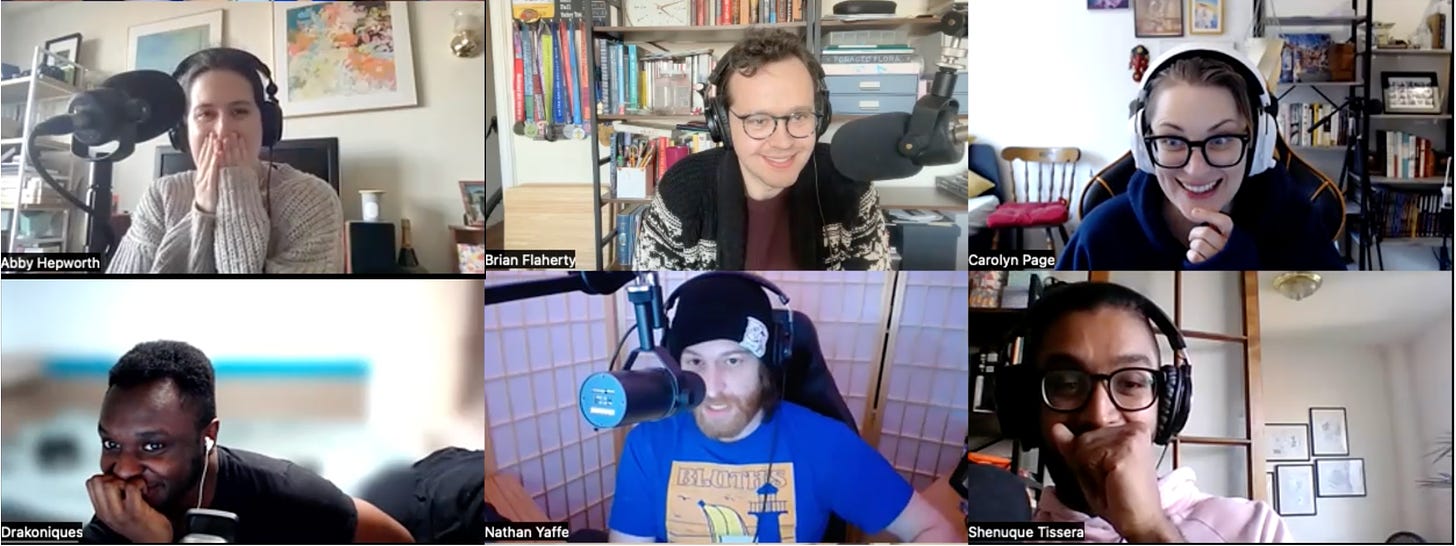
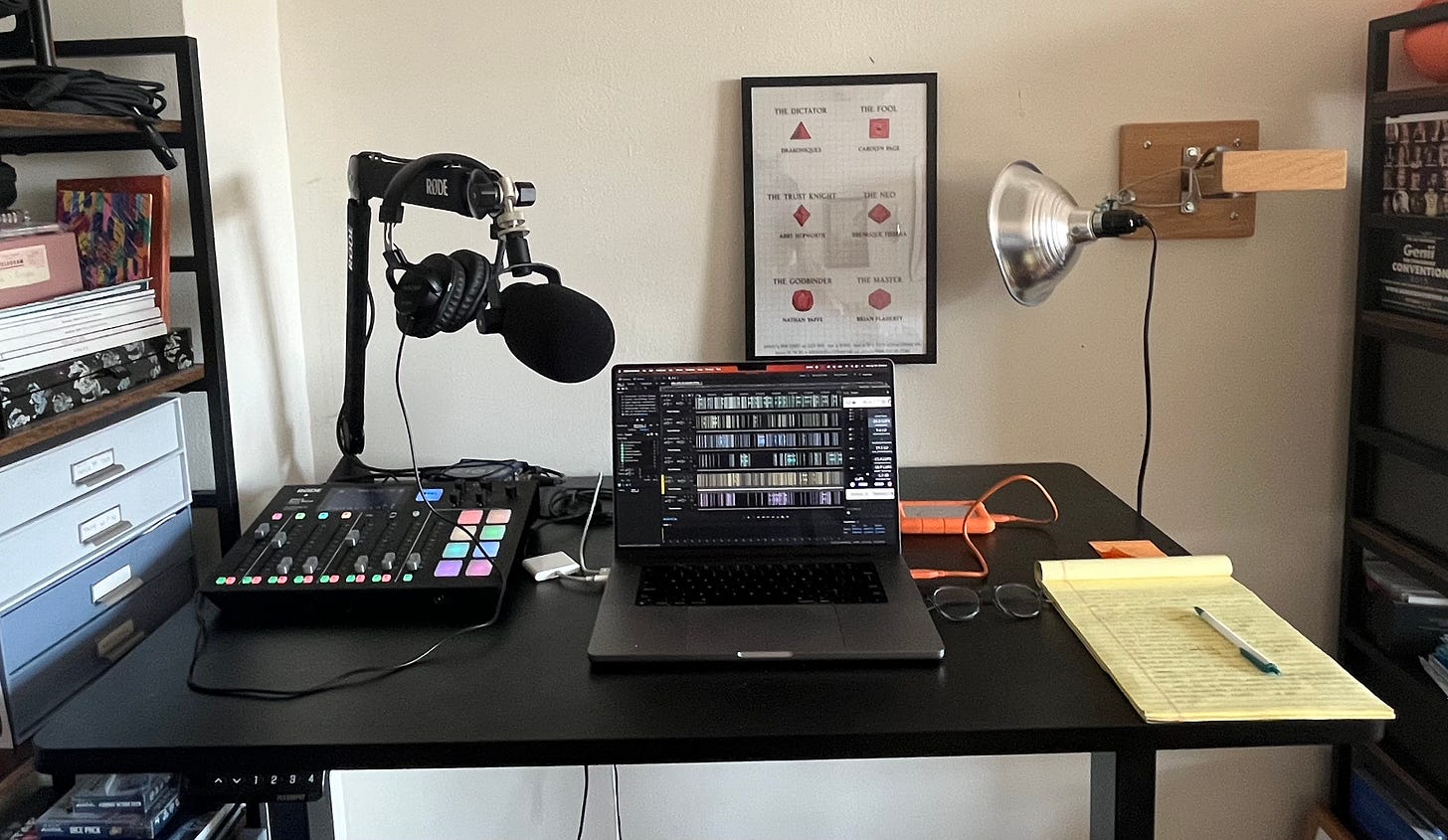
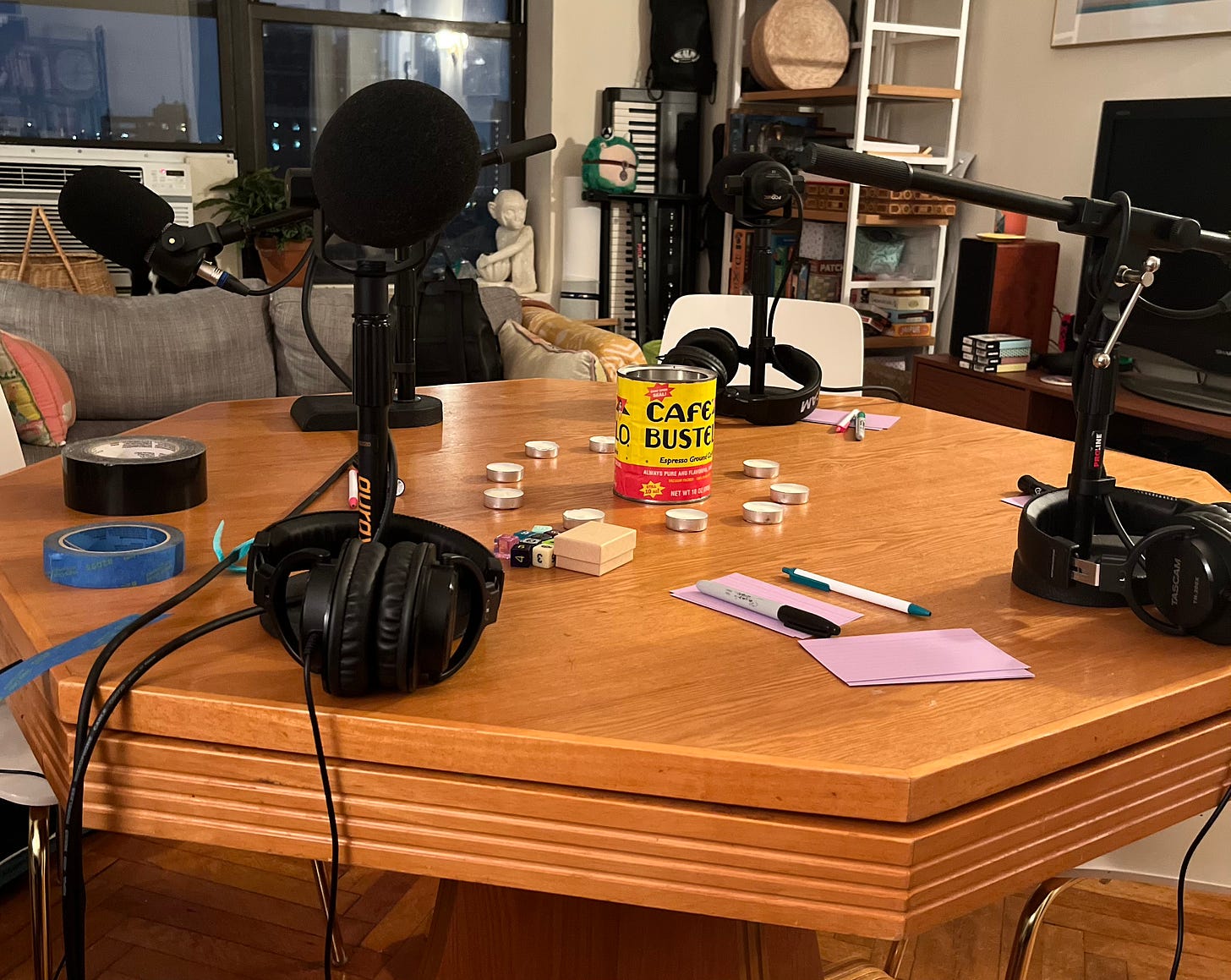
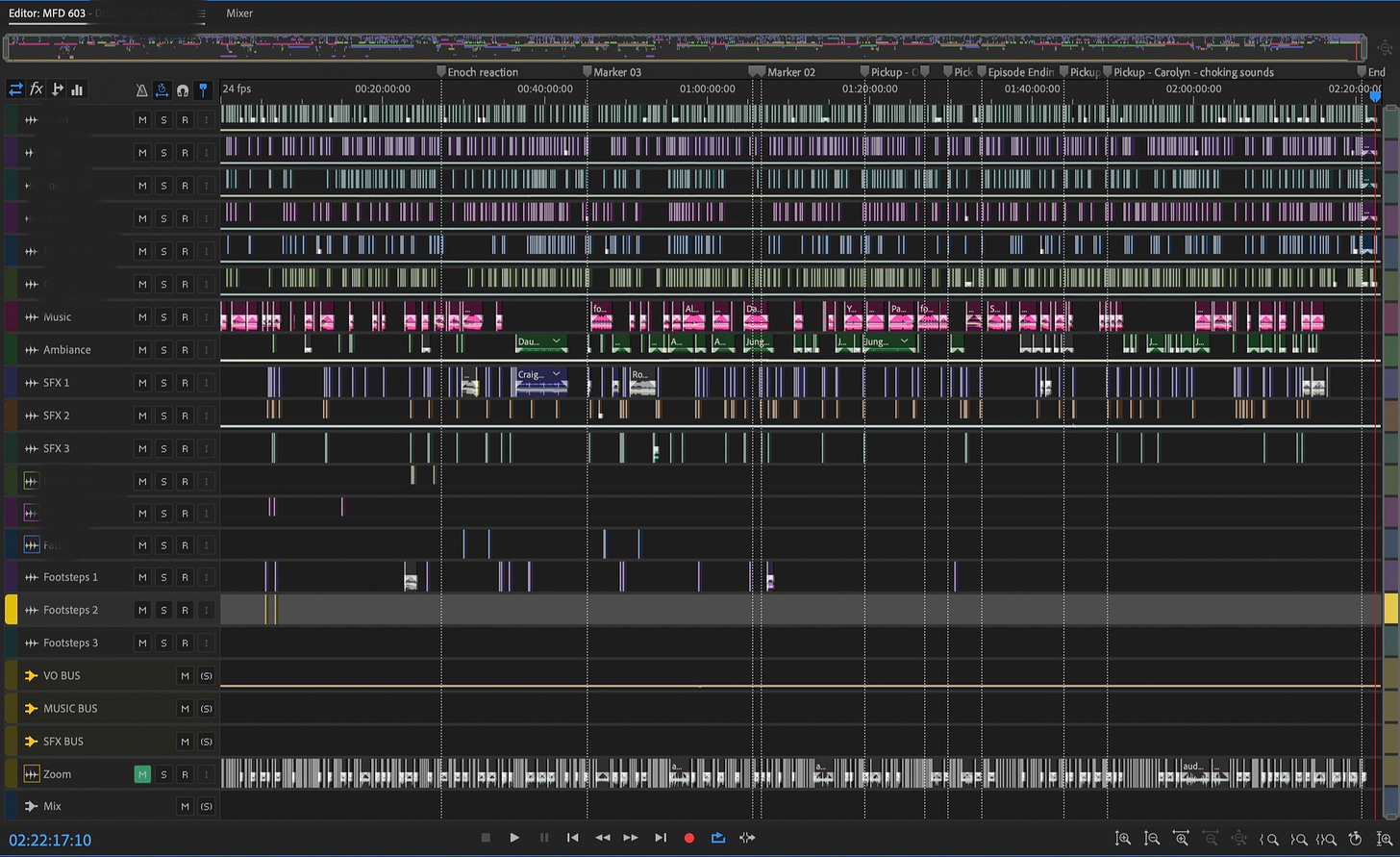
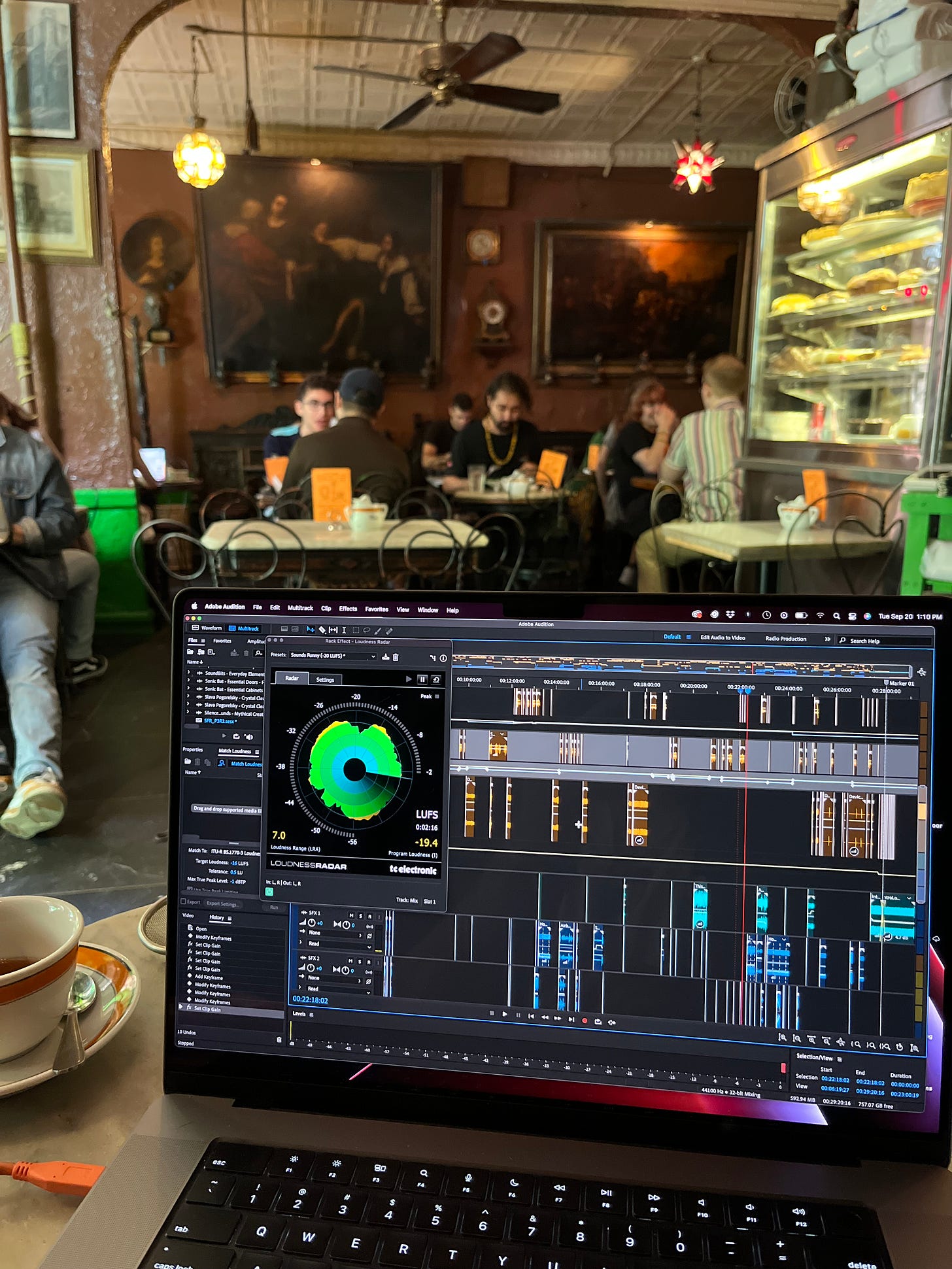

I keep shouting this to high heaven, but the Reaper DAW is modular enough to turn it into a podcast editing powerhouse; the podcast community continues to ignore it for an Audacity / Garageband recommendation.
Reaper is only $60 for a single license, with no bullshit monthly fees.